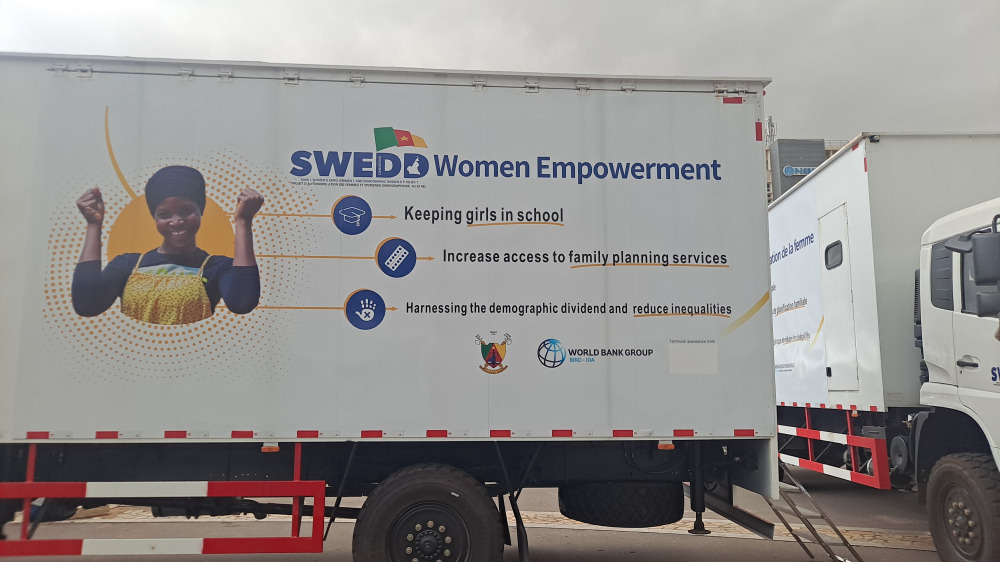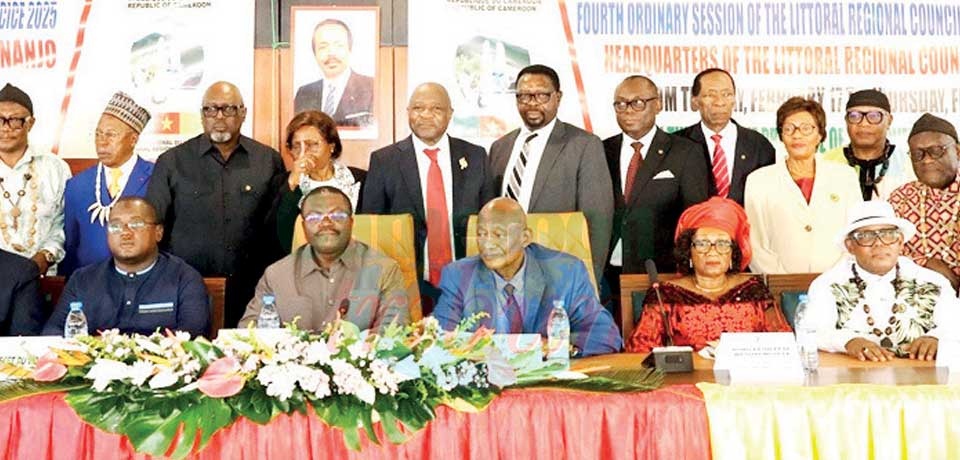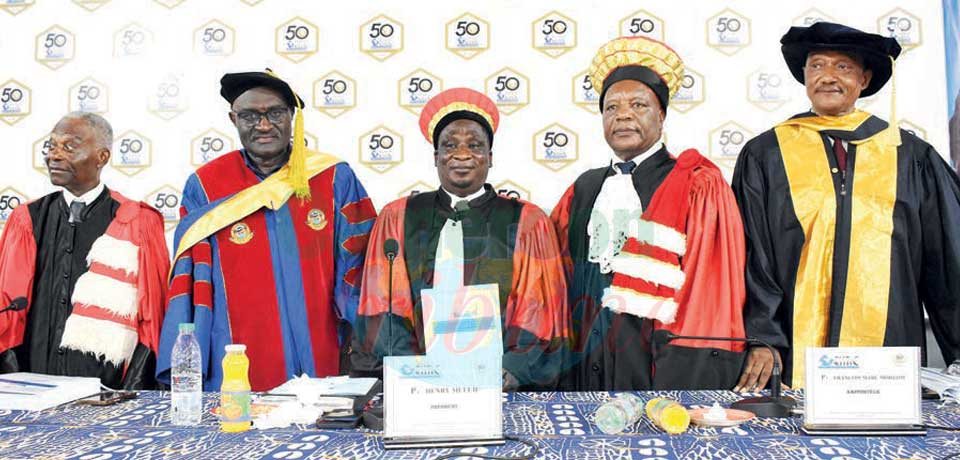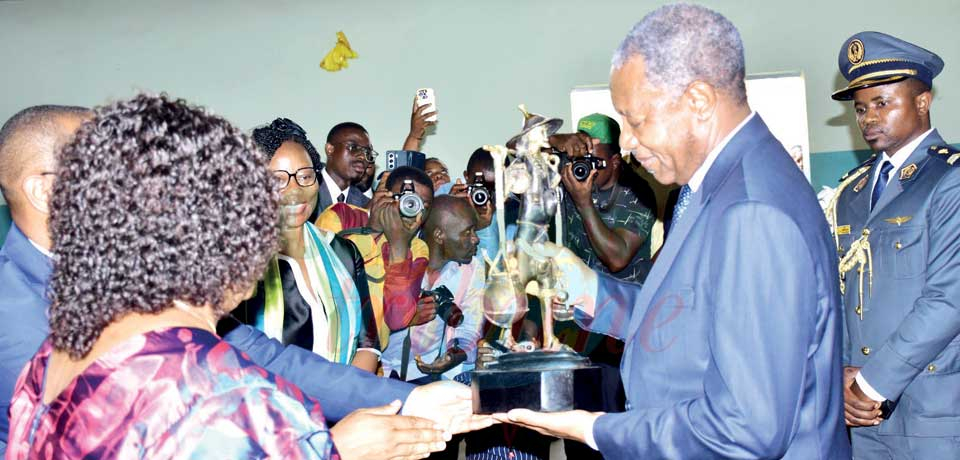So As To Empower Women, Keep Girls In School
- Par Kimeng Hilton
- 08 Jun 2025 05:06
- 0 Likes

The Sahel Women's Empowerment and Demographic Dividend in Sub-Saharan Africa, SWEDD project focuses on the upliftment of the lives of women and girls.
“The development of Cameroon's human capital depends on the empowerment of women and girls, including in the Sahelian regions. Gender equality is a powerful lever for the structural transformation of the national economy and Cameroon's achievement of emerging country status by 2035,” said Alamine Ousmane Mey, the Cameroon Minister of Economy, Planning and Regional Development, MINEPAT. He is also Chair of the Steering Committee of the Sahel Women's Empowerment and Demographic Dividend, SWEDD project in Cameroon.
The Report
On May 15, 2025 in the Cameroonian capital, Yaounde, SWEDD gathered partner government ministries, United Nations agencies, the representative of the World Bank in Cameroon – amongst others – to present the project’s technical and financial assessment. Since it was rolled out in Cameroon in 2021, joining other Sahel nations in its second phase. SWEDD’s objectives are to accelerate demographic transition, trigger the demographic dividend, and reduce gender inequality in Cameroon.
School Attendance Challenges
Meanwhile, studies carried out by SWEDD revealed a drop-out rate of 3.0% for the Northern regions of Cameroon as a whole, with a peak of 10.4% in rural areas. Nearly 7 out of 10 girls who have dropped out are still in primary school, while 63.9% of girls who have dropped out are Christian. And just over a third of them (67.6%) are aged between 16 and 18, according to the study, “Etude sur le décrochage scolaire et les stratégies de maintien des filles à l'école dans les régions septentrionales du Cameroun.”
Keeping Girls In Schools
Apart from distributing school supplies, SWEDD has since 2021 organized campaigns to raise awareness on girl child education in local communities. SWEDD Cameroon worked closely with parents, community leaders and schools to highlight the long-term benefits of keeping girls in school, both for them and for the development of their communities.
‘Education is a powerful tool for breaking the cycle of poverty and enabling young girls to build a better future,” said Dr Mbah Ngami Alphonse Glory, SWEDD Cameroon National Coordinator. “By providing school kits, we are not just responding to an immediate need, we are investing in the future of young women,” he emphasized.
Education, Vocational Training
According to Dr Mbah Ngami, the Sahel Women's Empowerment and Demographic Dividend (SWEDD) Project enabled 4,430 vulnerable girls to receive schooling support grant in 2021 in the context of COVID-19. Similarly, 17,238 girls benefited from the payment of their required fees and registration for certificate examinations for the 2024/2025 school year in the Adamawa, Far North, and North regions.
Some 32,000 girls in years 5 and 6 in college received school kits, solar school bags, and 2,000 literacy kits in 450 primary schools and 227 secondary schools. Some 28,867 girls in Form One and Class Six benefited from support classes to address learning and composition difficulties for attaining better grades. To facilitate transport for the most vulnerable secondary school girls, 1,040 of them were provided with bicycles to get to school.
Institutional Support
At the institutional level, 165 Women and Family Promotion Centres (CPFF), Multifunctional Youth Promotion Centres (CMPJ), Rural Craft and Homemaking Centres (SAR-SM), with a total capacity of 66,000 learners per year, were equipped. With 1,650 sewing machines, 330 overlockers, 660 sewing and plumbing kits, as well as various household appliances provided.
These support centres provide vocational training and life skills adapted to the needs of families and the local economy. SWEDD also acquired three podium cars to support community mobilization interventions by decentralized structures of the Ministry of Youth and Civic Education, with a view to stimulating social and behavioral change, UNFPA Cameroon Resident Representative, Dr Justin Koffi, said.
Gender Equality
SWEDD established 45 community safe spaces equipped with capacity-building curricula and management standards. Some 90 mentors and 9 female supervisors were recruited and trained to accommodate 4,500 women and girls. These safe spaces provide protection for women who are survivors of or at risk of gender-based violence. They also contribute to their social and economic integration.
Also related to the fight against violence against women, SWEDD established a referral system and a mapping of survivor support structures and stakeholders. More than 250 community leaders were sensitized and committed to promoting girls' education and combating all forms of gender-based violence, Dr Koffi added.
Development Planning
The project contributed to building capacity for developing public policies geared toward capturing the demographic dividend. Despite these efforts and quality equipment, needs and challenges persist on the gro...
Cet article complet est réservé aux abonnés
Déjà abonné ? Identifiez-vous >
Accédez en illimité à Cameroon Tribune Digital à partir de 26250 FCFA
Je M'abonne1 minute suffit pour vous abonner à Cameroon Tribune Digital !
- Votre numéro spécial cameroon-tribune en version numérique
- Des encarts
- Des appels d'offres exclusives
- D'avant-première (accès 24h avant la publication)
- Des éditions consultables sur tous supports (smartphone, tablettes, PC)














Commentaires